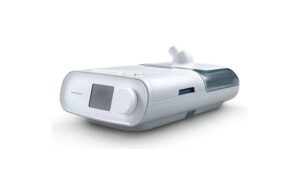
Problems have continued to mount over the past two years or so for the Dutch medtech giant. In 2021, Philips initiated a recall involving millions of CPAP and BiPAP ventilators and other respiratory devices for sleep apnea and more. These devices had sound abatement foam that could potentially degrade and get into the airways.
Philips Respironics effectively remains out of the sleep therapy market today. The most recent tally associated with reports to the FDA includes 260 deaths. An update in February had medical device reports (MDRs) nearing 100,000 in total.
Here’s a timeline of how the recall has played out.
Today, the FDA issued a recall notice regarding certain DreamStation1 devices reworked by Philips as part of the initial recall.
The latest affected devices
FDA’s notice lists the affected product as the “Philips Respironics DreamStation1 (uno remediate devices).” Models include CPAP, BiPAP and more.
The company distributed the affected reworked DreamStation devices between Dec. 1, 2021, and Oct. 31, 2022. It initiated the recall on Feb. 10, 2023. To date, Philips recalled 1,088 devices in the U.S.
According to the FDA, the recall specifically covers certain DreamStations that Philips also recalled in June 2021.
Reason for the latest Philips recall
Philips recalled the reworked DreamStations because some devices were assigned incorrect or duplicate serial numbers. This occurred during initial programming.
Duplication can cause therapy delivery using the wrong prescription or factory default settings. Additionally, the devices may fail to deliver therapy at all. They offer no warning or indication to the user that the DreamStation fails to work the way the doctor intended or prescribed.
Incorrect or failed therapy may lead to several health conditions. These can include respiratory failure, heart failure, serious injury and death.
Philips received 43 complaints about this issue. It received zero reports of injuries or deaths.
Statement from Philips
A Philips spokesperson said in an emailed statement that customers can continue using affected devices in accordance with instructions for use. At the time of the notification, the company received no reports of patient harm, as laid out in the FDA notice.
Philips continues to reach out to patients to set up the replacement and return of affected devices. The recall does not require further action by patients. To date, Philips is more than halfway done with shipments of replacement devices to patients.
“This matter does not impact the remediation of sleep therapy devices under the June 2021 field safety notice,” Philips’ statement reads. “We regret the concern that this field safety notice for specific sleep therapy and ventilator devices have caused for patients and care providers. Following the substantial ramp-up of capacity, Philips Respironics has now produced the replacement devices and repair kits required for the remediation of the registered affected sleep therapy devices globally.”
Difficulties continue
Like everyone in medtech, Philips felt the impact of supply chain issues and macroeconomic pressures over the past year or so. However, the recall issues contributed to further malaise at the company.
The Amsterdam-based company announced in October 2022 that it planned to cut its workforce by roughly 4,000 globally. That amounted to about 5% of the headcount listed in its previous annual report.
In its fourth-quarter earnings report in January 2023, Philips said it planned to eliminate a further 6,000 global positions. Half the cuts will take place this year, with the remainder to be done by 2025. The layoffs represent about 13% of Philips’ global workforce.
“2022 has been a very difficult year for Philips and our stakeholders, and we are taking firm actions to improve our execution and step up performance with urgency,” said CEO Roy Jakobs.

